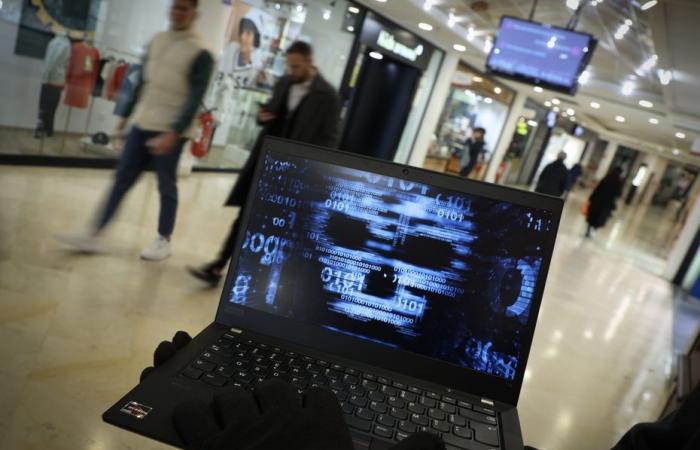
In 2024, cyberattacks have multiplied in France and New Aquitaine has not been spared with the attack on a system dedicated to Limousin and Aquitaine breeders and the hacking of websites of municipalities such as Bordeaux. Thierry Berthier, cybersecurity expert and teacher-researcher at the University of Limoges, takes stock of the risks, the main targets and simple methods to protect yourself.
Company
From daily life to major issues, discover the subjects that make up local society, such as justice, education, health and family.
France Télévisions uses your email address to send you the “Society” newsletter. You can unsubscribe at any time via the link at the bottom of this newsletter. Our privacy policy
The last large-scale cyberattack recorded in the South-West was carried out on the night of December 14 to 15, 2024 and it heavily affected the agricultural world. Since then, the online platform, Synel, which allows the identification of farm animals, has been inaccessible in twenty-two departments including Haute-Vienne and Corrèze as well as all the departments of Aquitaine. This attack complicates the daily lives of breeders.
Also read: “They contacted us via encrypted messaging to obtain a ransom”: this cyberattack makes life impossible for breeders
Thierry Berthier is an expert in cybersecurity, doctor of mathematics, consultant and lecturer at the University of Limoges, on January 4, 2024, on the France Limousin plateau.
•
© France Télévisions
France 3 Limousin: explain to us what happened during this attack?
Thierry Berthier: This platform makes it possible to record the movements, births and sales of livestock. This software has been around for over twenty years. It is hosted by a host. It is this host who was the victim of a cyberattack. The attackers managed to break into the system and encrypt a number of databases, which are necessary for the operation of the platform, and therefore managed to block its operation.
What is the benefit for those who carry out this type of attack?
The objective is to block the operation of a service, then demand a ransom, money from the platform. You should know that the penalties incurred are much less than carrying out a robbery, or selling drugs and the gain is greater.
When a platform pays, there is a chance that the attackers will return a few months later. For SMEs, these kinds of attacks can be very crippling. Companies will therefore be tempted to pay the amount. In France, nearly 35% of targeted organizations pay the amount.
The police and gendarmerie services are equipped with cybersecurity brigades (photo illustration).
•
© FRANCK KOBI / MAXPPP
Is it easy to trace the perpetrators of the attacks?
In general, it is difficult. An investigation must be carried out. There are police and gendarmerie services which specialize in this area. It's not easy, but sometimes we manage to come back. It could be almost anyone. For companies, the risk can be internal, with an employee who has retained access. They are also cybercriminal groups. We always think of the Russians or the Koreans. But for Synel, this is not the case. Often, these groups of cybercriminals act on their own behalf. There are no political motivations. It's just the money.
Today, almost anyone can engage in these malicious activities by becoming a franchisee, affiliated with a much larger structure, and using cyberattack tools. These tools are available very easily. In return, the person who will collect the ransom undertakes to return part of the ransom with the excess part.
Are computer attacks becoming more and more frequent?
Yes, by 2024 the total cost of global cybersecurity will exceed the cost of drug trafficking. We are talking about billions. Just for small platforms cryptolocker (Editor’s note: crypto-locker malware) like the one that affected Synel, that represents 100 million turnover per year.
It is believed that more than 50% of global businesses have experienced cryptolocker or ransomware attempts in the past year. The amount of ransoms is only increasing. It's not going to get better, that's for sure.
Who are the main targets?
The main targets are SMEs and VSEs which have fewer security resources, because it is very expensive and it is often not their priority. For individuals, making personal data inaccessible is not necessarily effective. With regard to OIVs (Organizations of Vital Importance) such as hospitals and nuclear power plants, the ANSSI (National Agency for Information Systems Security) ensures their security. But, as we have seen, risk 0 does not exist.
Also read: Cyberattack on websites: “Few consequences, no data leak” in Bordeaux and Pau, two cities targeted by hackers
How can we protect ourselves from this type of attack?
The best thing to do is to copy all your data to a hard drive which will be, as little as possible, connected to a computer, to be sure you always have access to your important information.





